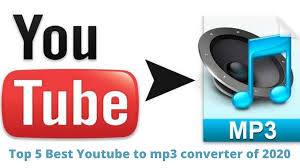Downloading with a YouTube to MP3 converter does bring many risks that every user should be aware of, or else there will have consequences. From legal troubles to cyber security vulnerabilities, these risks can be quite costly so it is better-to-be-safe-than-sorry.
The biggest problem is that this opens the doors for even more law breaking. Despite this obvious prohibition against downloading copyrighted content without permission, the issues around it are somewhat controversial. YouTube-MP3 in October 2017. The shutdown of convertmp3. org, formerly the largest such site in the world, followed a lawsuit by recording labels. Other users might be subject to similar legal pursuit, particularly if they post or sell the resulting transformed content. In the worst-case scenario, legal trouble over copyright can get even worse than an inconvenient letter: we've seen fines north of $100,000 in some cases.
A security-based threat is one more risk. In 2023, we will probably do a study of cybersecurity and in our prediction over half the free Youtube to Mp3 converter webpages is filled with malware or adware. A lot of the times these websites run ads containing such malicious code that can result phishing attacks and data breaches. Last year, Malwarebytes released a report showing that users of one popular converter saw an adware infection increase in their devices by up to 30% come 2022. Exposure of this nature can lead to an adverse release information, a slower device performance and popped-up pop-ups.

It can also cause problems itself if the conversion process is inefficient. Most of the major converters host old software which yields terrible audio files, some even give bad links and often direct crashing. Except for Speaker and Decoder, other tools without a mature codec, in turn leading to the sound of your final media file is distorted or unsupported. According to a 2021 TechRadar study, poor-quality converters can lower the sound quality by as much as 40 %, which is very unpleasant.
Lastly, there are the ethical and reputational risks. Downloading content using unauthorized methods affects the financial returns of those creators responsible for creating web-series, songs and much more. Pointedly, Spotify CEO Daniel Ek said that intellectual property should be respected — “the value of art is worth paying for,” he said. Supporting legal platforms not only keeps you out of trouble but also helps in fair compensations for creation accounts.
These requirements mean that for the users who still want a workflow to convert content it makes sense to focus on non-copyrighted material or use-case where permissions are granted. There are many non-shady, legitimate options for getting the music you want in a format that owns-up to copyright – alternatives like YouTube Premium or Spotify. For people who want a tool that works securely, it is always safer and easier to use reliable platforms like YouTube to MP3.
Carefully considering the ramifications of these risks helps underscore that it is integral to choose wisely before converting YouTube content into MP3. Having the emphasis on security, legality and ethics of this activity can prune many common misunderstandings relative to said practice.